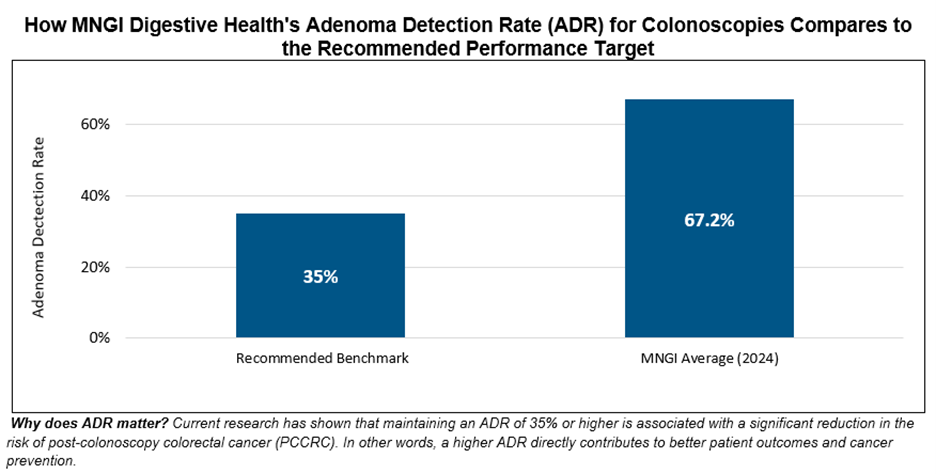At MNGI Digestive Health, delivering high-quality, patient-centered care is at the heart of everything we do. One of the most important measures of colonoscopy quality is the Adenoma Detection Rate (ADR), which is the rate at which precancerous polyps (adenomas) are detected during a colonoscopy. This metric is not only a reflection of our physicians’ clinical excellence, but also a critical factor in reducing patients’ risk of colorectal cancer.
National gastroenterology societies, such as the American College of Gastroenterology (ACG) and the American Society for Gastrointestinal Endoscopy (ASGE), recommend a minimum ADR benchmark of 35% or higher. Meeting or exceeding this target is proven to significantly reduce the risk of post-colonoscopy colorectal cancer (PCCRC), a key measure of preventive care success.
We’re proud to share that MNGI’s current average ADR is 67.2%, nearly double the national recommendation. This outstanding result underscores our continued commitment to clinical quality, early detection, and cancer prevention.
Higher ADRs are directly linked to improved patient outcomes. Detecting and removing adenomas during colonoscopy can prevent colorectal cancer before it starts. That’s why MNGI continually monitors colonoscopy quality indicators and ensures all physicians follow evidence-based guidelines, including appropriate surveillance intervals recommended by the Centers for Medicare & Medicaid Services (CMS) ASC Quality Reporting Program.
At MNGI, we don’t just meet standards, we aim to exceed them. Our team is proud to lead with quality, compassion, and excellence in every colonoscopy we perform. Learn more about ADR and other quality measures on the Quality & Outcomes section of our About Us page.



